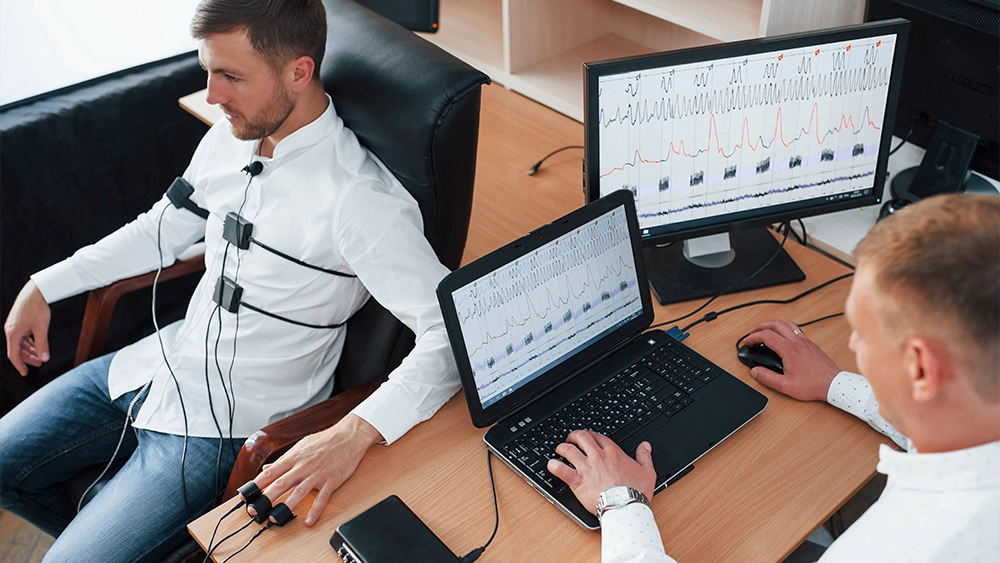WE ASPIRE TO EXCEED YOUR EXPECTATIONS
Please contact us for your free consultation and with any questions or comments you may have about our services. We’re here to assist you in any way we can. Contact us on our Helpline in the United Kingdom: +44 (0) 7770 464472
Alternatively, you can use the form below to send us an email.
Contact Information
Office hours:
Monday to Friday: 08:30 to 21:00
Saturday and Sunday: 10:00 to 19:00
If we are engaged in consultation when you call, please leave a message and we will contact you as soon as possible.
Lie Detector Test Services
- Care-providers and Domestic Staff
- Theft and Assault
- Infidelity
- Paternity Testing
- Family Disputes
- Sexual Abuse
- Corporate Investigations
- Employment Screening
- Terrorism
- Criminal Cases
- Secrecy Clearance
Polygraph test? Lie detector test? Which is correct?
The term “polygraph” means “many writings”. It’s named after the testing procedure: several physiological responses are measured at the same time to detect signs of deception. This discipline is called forensic psychophysiology.
The combination of “psychology” and “physiology” refers to the relationship of the mind and body; the Polygraph Instrument measures physical responses to thoughts and emotions. (For this reason a polygraph examiner is also known as a forensic psychophysiologist.) A polygraph instrument is used in performing lie detector tests, so both terms are used interchangeably.
How Accurate Are Lie Detector Tests?

Lie detector tests, also known as polygraph tests, have long been a subject of fascination and controversy. Used in various scenarios from personal use to employment screenings, their accuracy and reliability remain topics of debate. read more about here.
